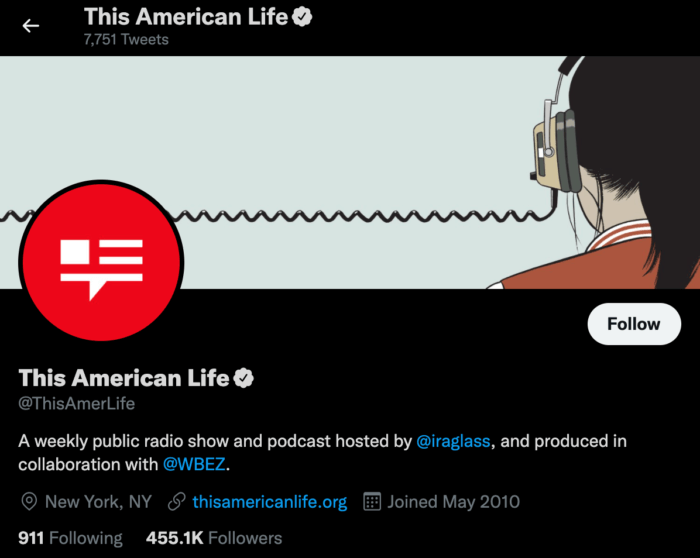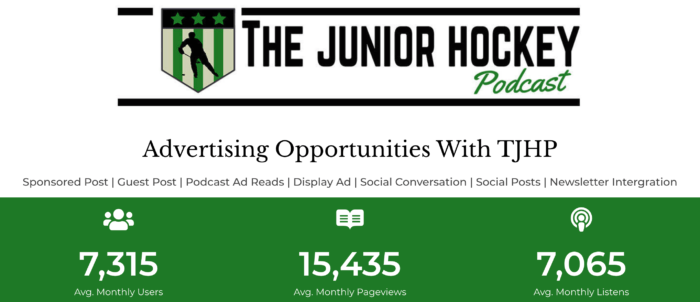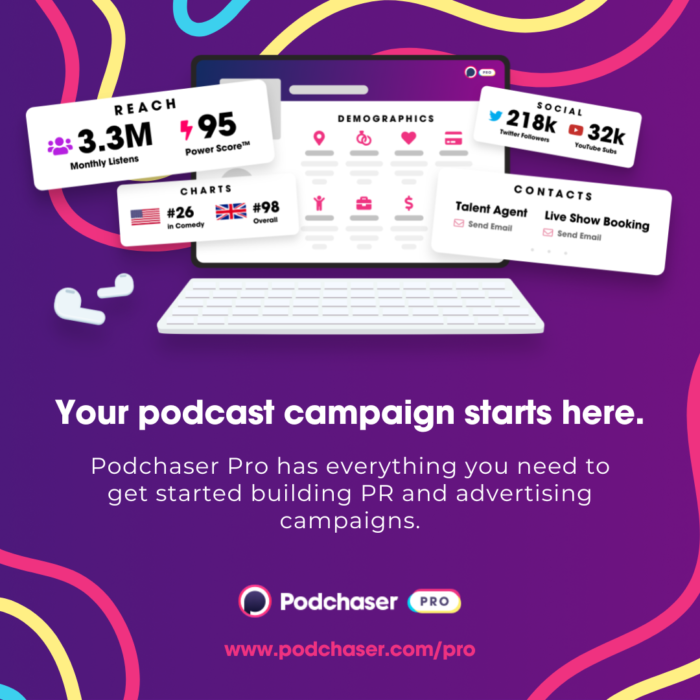- Podchaser Pulse
- Posts
- How to See How Many Listeners a Podcast Has
How to See How Many Listeners a Podcast Has
(7 Easy Methods)

Finding a podcast’s listenership data ain’t easy. It requires some special techniques 😼, if ya know what I mean. We’ve laid out 7 tactics to find how many listeners a podcast has.
But first, the question we all have.
Why It’s Difficult to Find How Many Listeners a Podcast Has
Why’s it so darn difficult to find how many listeners a podcast has? After all, podcast hosting providers openly share download statistics with every podcaster and podcasting network. The info’s out there, but it’s still hard to access. Why? Couple hundred hosting providers. Dozens of player apps. No click-based attribution. The listenership data’s hidden behind a thousand doors.
Another reason: podcasters are reluctant to share their own download numbers. It’s a personal thing. We get it.
And the big reason: the competitive ad sales market. Competition’s fierce. Millions can ride on the numbers. Makes total sense to keep em close to the vest.
But fret not, you can find listenership regardlesss.
4 Methods to Estimate a Podcast’s Popularity
Okay, caught us. This doesn’t directly answer the question of, “how to see how many listeners a podcast has.” But for some purposes, you only need an estimate. Here are a few readily available tools to gauge a podcast’s popularity.
1) Reviews and Ratings

Podchaser, as well as Apple Podcasts, allows fans to rate podcasts on a five-star scale and write a long-form review of the show. While reading reviews and monitoring the average rating’s definitely valuable, they don’t help estimate the podcast’s popularity.
To estimate popularity, compare the number of ratings and reviews between various podcasts. The rating and review counts often correlate to the show’s popularity and engagement.
2) Rankings

Podcatchers also feature rankings where you can see the top trending podcasts overall, as well as in each category.
The main limitation to chart rankings is that they don’t directly represent which podcasts have the most downloads. Instead, they take velocity into account, meaning that a relatively small show can still chart if it gains listeners quickly.
Secondly, charts only show a small handful of the podcasts that are available. Apple Podcasts, for example, shows the top 200 podcasts in each category.
While this may seem like plenty, there are over 5.4 million podcasts, so 200 is really just a drop in the bucket. If you are looking for mid-range or smaller podcasts to meet your business needs, you won’t be able to find them using rankings.
3) Google Trends
Google Trends is a public tool that allows you to see how many people are googling a certain phrase. You can narrow your search to a certain timeframe, and Google Trends creates a graph showing the rise and fall of the search’s popularity over time.
To estimate a podcast’s popularity, simply type the name of the show into the search bar. You can even add a second show to your search and directly compare their popularity within the same graph.
Google Trends works well for a rudimentary comparison of one podcast’s popularity to another but isn’t exactly what you’re looking for. You want to know how to see how many listeners a podcast has.

Social Media can also be a proxy of estimation. It stands to reason that more followers indicates more listeners (right? eh). But when checking a podcast’s social media pages, you should also look for their engagement rate.
The podcaster may have 10M followers, but only get 50 nibs on their posts. This would be an indication that some of their followers are bots 🤖 or fake accounts. To calculate engagement rate, simply use Phlanx. All you need to do is select the social media platform, type in the podcasters social media handle, and Phlanx will calculate the engagement rate. It’s worth your time to calculate a podcast’s engagement rate across social media platforms, as their audience may be more active on one versus another.
Instead of individually searching each social media platform for a podcast’s accounts, use Podchaser. On every Podchaser podcast page, we’ve already compiled the social media links for you.
3 Methods to Find How Many Listeners a Podcast Has
1) Ask The Podcast Directly
The main reason why podcasters would reveal their download statistics is to attract advertisers. So if you’re an advertiser (or superfan sleuther), you can ask the podcast for their numbers directly. Podcasts will be happy to share their numbers if it leads to the possibility of a business partnership.
It can be tricky to find podcast contact information, so we’ve written a whole article to help you out. Long story short, use Podchaser Pro, which has already gathered verified contact information for thousands of the top shows in one easy-to-find place.
2) Check their Website

If you’ve asked directly and haven’t received a response, you can check to see if they have an “Advertise With Us” page on their website, where they’ll likely boast their current download numbers. Here’s an example: The Junior Hockey Podcast’s “Advertise With Us” page
This tactic is a bit of a gamble, as not all podcasts have this page. More popular podcasts want to keep their numbers tight. Smaller shows might not get frequent enough advertisers to make this page useful. But sometimes you get lucky, ducky. So it’s worth a shot to seek out their “Advertise With Us” page.
3) Podchaser Pro

Another direct and simple method for finding a podcast’s listenership is to use Podchaser Pro. Podchaser Pro, a paid upgrade to our free site, provides reach data on every podcast as you browse the site, so you can quickly vet and compare podcasts before reaching out– saving you hours of work.
All you need to do is search Podchaser’s comprehensive database for what podcast you’re interested in, go to the show’s page, and click the “Insights” tab. From there, on thousands of the top podcasts, Podchaser Pro estimates podcast reach per episode and per month.
Podchaser Pro also provides several other tools for podcast professionals, including sponsor history, reach, Power Score™(cross-platform popularity), demographics, and more.
Request a free demo to see why Forbes called Podchaser Pro, “an incredibly useful tool for podcast marketing or booking guests or promoting to media or for research and development.”